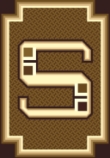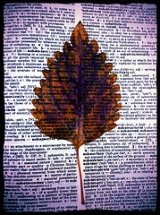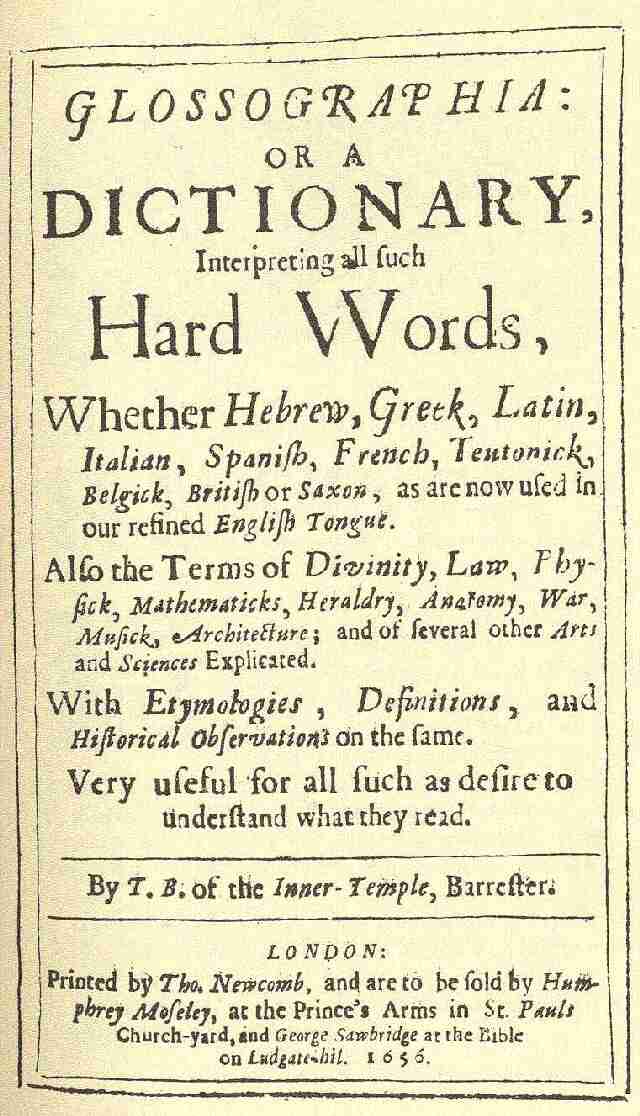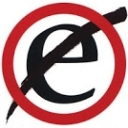
.
Frequently Asked Questions
- Are these real words?
With very few exceptions, every word in the International House of Logorrhea and every word in all of the glossaries is a real English word found in at least one major English dictionary. There are a couple of dummy words included to thwart those who would copy my site in toto, but these will be obvious if you find them.
- How many words do you know?
It depends what you mean by 'know'. If you mean 'words I use regularly', then probably not many more than your average well-educated person. If you mean 'words I could define', then the number is somewhat higher. I estimate that I could define 20-25% of the words in the IHL. Many of these, I'd know only from analysing their root words.
- Do you use all these words in everyday conversation?
Goodness, no. In fact, I find people who intersperse large, pompous words into everyday speech to be pretentious and ridiculous. Clear speech rarely requires the use of such words except in technical contexts.
- Can you provide etymologies or pronunciations for these words?
Unfortunately, no. This site is my hobby, and it is simply not feasible to do so. There are any number of free dictionaries on the Internet that will provide etymologies and pronunciations for many of the words in my lists. Moreover, everyone should own a print dictionary; a good, reliable and relatively unabridged dictionary should cost you no more than $30 US. The IHL and the various glossaries are intended to be quick reference sources, not to replace dictionaries.
- Can you tell me what my surname / the name of my hometown means?
Probably not. Onomastics (the study of personal names) and toponymics (the study of place-names) are not the same at all as etymology (the study of word histories and origins).
- I made up this really great word. Will you add it to your word list?
No, alas. Before I add a new word to my list, it must be found in at least one major dictionary. Neologisms (coined words) are a fascinating subject, and I can even agree that in some cases newly coined terms are highly useful, but a word must achieve at least some standard of acceptance before it can be considered part of the English language.
- How can I get people to use this word I made up?
The short answer is: you can't. Unless you have a wide audience of captive readers or listeners, or are a technical expert in some field in which you can coin words in some publication, trying to force a great new word into common English usage is nearly impossible.
- Can I get you to make up a name for my company/product/band?
I'd love to say yes, but don't trust me to be able to give you what you want. What I can do, within reason, is to provide you with a short list of obscure words relating to some concept or keyword in which you're interested. Beyond that, consult a marketing expert.
- Can I link to your site?
Sure, go right ahead.
- I would like to purchase some fabric. Can you send me some samples?
OK, people, listen up. This. Is. A. Site. About. Words. Period. I do not buy or sell fabric. I do not have pictures of fabric. I do not know whether a type of fabric is machine-washable.
- There are three words in the English language that end in the letters "-gry". Two of them are angry and hungry. What is the third?
This is a non-riddle that has vexed everyone who has ever participated in English language communities online. There is no such word. As far as anyone can tell, this puzzle seems to have originated as a trick question, but the 'trick' has long since been lost, leaving only frustrated logophiles.
- You said on your Scrabble page that JEW is a valid word, but I was playing online and it got challenged and I lost. Why?
I provide two word lists on my Scrabble page, TWL06 (American) and SOWPODS (international), which are used in tournaments. However, a lot of online sites use the Official Scrabble Player's Dictionary list, which contains all the TWL06 words except vulgar ones, which were bowdlerized (wrongly, in my view) to make for a more family-friendly game. Be aware of the rules under which you're playing.
- Where can I find a list of all the words in English, without definitions?
The biggest one I know of is aptly named The Biggest Online Text Dictionary on the Web, which has 175,000 words, but it seems to contain a lot of proper nouns and foreign words, and thus may not serve your purposes.
- Do you run, or are you planning to run, a word-a-day mailing list?
Unfortunately, at present, I don't have the time or ability to commit regularly to such a list. I subscribe to the wordsmith.org A.Word.A.Day list, which I can heartily recommend.
- Is W a vowel?
Not in English, not really. It's sometimes asserted that W, like Y, is sometimes a vowel, but unlike Y, W does not fulfil the role of a vowel in normal English words. However, in a very few loan-words from Welsh like 'cwm' and 'crwth', W acts like a vowel.
- What is the name for the carving (usually of a woman) that goes on the bow (front) of a ship?
The word is 'figurehead'. The metaphorical sense of the word, meaning someone who is nominally but not effectively in charge of some organization, derives from the nautical sense.
- Why are your words spelled with all those extra Us, like 'colour' and 'honour'?
I'm Canadian, and for the most part we use international spellings of words like 'honour', 'centre', and 'cheque', which are predominant throughout the English-speaking world other than the United States. I do teach in America and thus am fluent in the tongue of your people, but it is not my own.
I hope you have found this site to be useful. If you have any corrections, additions, or comments, please contact me. Please note that I am not able to respond to all requests. Please consult a major dictionary before e-mailing your query. All material on this page © 1996-2021 Stephen Chrisomalis. Links to this page may be made without permission.








